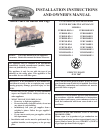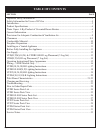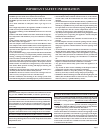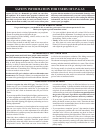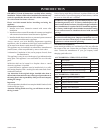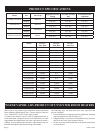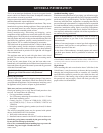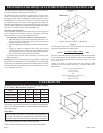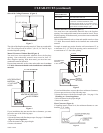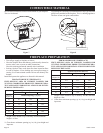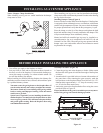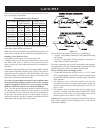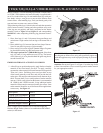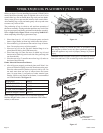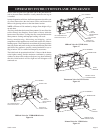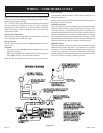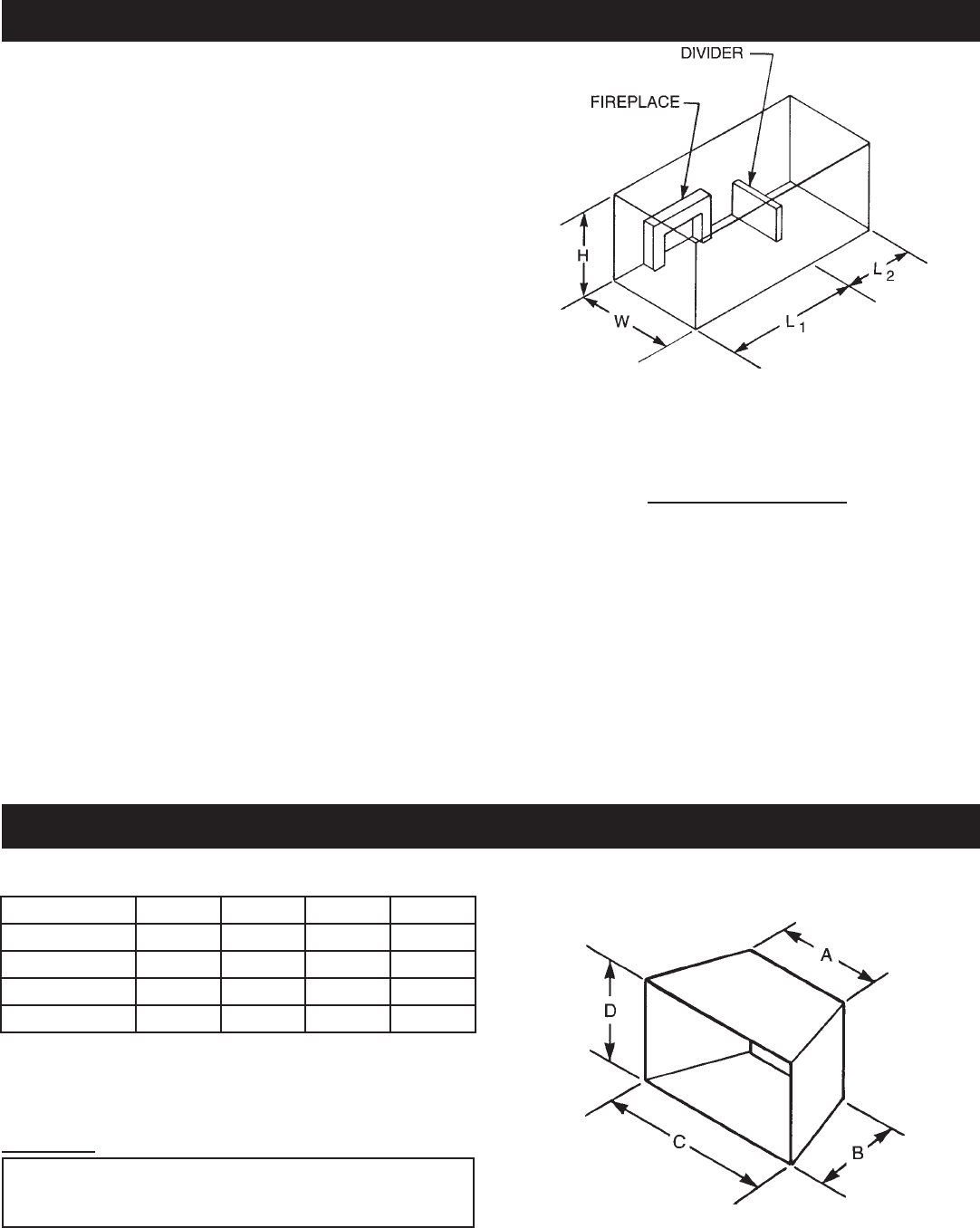
Page 8 23099-1-0707
Example of Large Room with 1/2 Wall divider.
Figure 1
The following formula can be used to determine the maximum heater
rating per the definition of unconfined space:
Btu/Hr =
(L
1
+ L
2
)FT x (W)FT x (H)FT
x 1000
50
If the area in which the heater may be operated is smaller than that defined
as an unconfined space, provide adequate combustion and ventilation air
by one of the methods described in the National Fuel Gas Code, ANSI
Z223.1, Section 5.3.
Adhere to all codes, or in their absence, the latest edition of THE
NATIONAL FUEL GAS CODE ANSI Z223.1 or NFPA54 which can be
obtained from:
American National Standards Institute
11 West 42nd St.
New York, NY 10018
OR
National Fire Protection Association, Inc.
Batterymarch Park
Quincy, MA 02269
Minimum Dimensions For Solid Fuel Burning Fireplaces
UL127 Factory Built Fireplaces (Figure 2)
Model A B C D
VFDR18LB10 17" 12" 28" 17"
VFD(R,T,M)18 17" 12" 28" 17"
VFD(R,T,M)24 23" 12" 30" 18"
VFD(R,T,M)30 26" 12" 34" 20"
The dimensions shown and defined in the fireplace manufacturer’s
instructions are minimum clearances to maintain in installing this
heater. Left and right clearances are determined when facing the
front of the heater.
Glass Doors
Make sure that glass doors are open during all operations of
the logset. The opening of the glass door frame should be the
dimension used for the minimum front opening of the firebox.
Follow these instructions to ensure safe installation.
Failure to follow instructions exactly can create a fire hazard.
Figure 2
This heater shall not be installed in a confined space unless provisions are
provided for adequate combustion and ventilation air.
The National Fuel Gas Code defines a confined space as a space whose
volume is less than 50 cubic feet per 1,000 Btu per hour (4.8m
3
per kw) of
the aggregate input rating of all appliances installed in that space and an
unconfined space as a space whose volume is not less than 50 cubic feet
per 1,000 Btu per hour (4.8 m
3
per kw) of the aggregate input rating of all
appliances installed in that space. Rooms communicating directly with the
space in which the appliances are installed, through openings not furnished
with doors, are considered a part of the unconfined space.
Unusually Tight Construction
The air that leaks around doors and windows may provide enough fresh
air for combustion and ventilation. However, in buildings of unusually
tight construction, you must provide additional fresh air.
Unusually tight construction is defined as construction where:
a. Walls and ceilings exposed to the outside atmosphere have a con
-
tinuous water vapor retarder with a rating of one perm or less with
openings gasketed or sealed, and
b. Weather-stripping has been added on openable windows and doors,
and
c. Caulking or sealants are applied to areas such as joints around
window and door frames, between sole plates and floors, between
wall-ceiling joints, between wall panels, at penetrations for plumb
-
ing, electrical, and gas lines, and at other openings.
If your home meets all of the three criteria above, you must provide
additional fresh air.
Warning: If the area in which the heater may be operated is smaller than
that defined as an unconfined space or if the building is of unusually tight
construction, provide adequate combustion and ventilation air by one of the
methods described in the National Fuel Gas Code, ANSI Z223.1, Section
5.3. or applicable local codes.
PROVISIONS FOR ADEQUATE COMBUSTION & VENTILATION AIR
CLEARANCES



